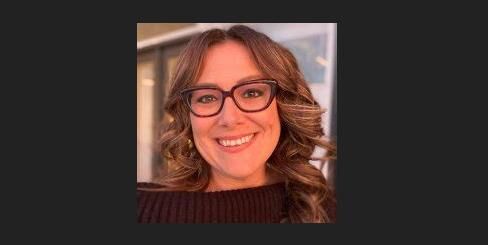Department of Corrections supplemental budget request reveals staffing crisis at private prisons

The Polis administration is seeking to bump the state’s current spending plan by $572 million, with a portion of that money paying for a salary hike to help recruitment and retention efforts at privately-run prisons.
The Joint Budget Committee approved that request to boost pay for corrections employees on Friday. It is among a slew of supplemental budget requests from Gov. Jared Polis that the legislature is slated to tackle next week.
The 2021-22 general fund budget, which is paid for with revenue from income and sales taxes, stood at $14.9 billion as of November 1. The governor’s request would bring the general fund total to $15.5 billion.
Low pay for correctional officers at private prisons has turned into a crisis, with turnover rates exceeding 100% per year, according to a JBC analysis of the supplemental request from the Department of Corrections.
There are only two private prisons in the state, located in Crowley and Bent counties, both owned by CoreCivic. Both counties are heavily reliant on property taxes paid by its private prison, with that revenue accounting for 54% of Crowley County’s property tax base and 25% in Bent County.
Democrats, led by Rep. Leslie Herod, D-Denver, have had those prisons on the radar for several years. Herod has tried but so far failed to convince lawmakers to get Colorado out of the private prison business.
She has argued that people of color are disproportionately incarcerated. In Colorado, as of 2017, while 5% of the general population was African-American, in prisons they made up 18% of the incarcerated population.
There’s also a belief among Democrats that companies should not profit from mass incarceration, although that position doesn’t extend to companies that profit from public prisons through the services or goods they supply.
Private prisons, according to the Prison Policy Initiative, hold less than one-tenth of those incarcerated in the United States, and that percentage has remained relatively stable over the last 30 years, while at the same time, populations in public prisons have quadrupled.
Herod is now a member of the Joint Budget Committee that heard the request from the Department of Corrections for the per diem rate increase.
The department asked for an extra $8.2 million in general fund for several items. That includes an extra $1 million for the per diem increase for private prisons, which would hike the rate from $58.79 per inmate per day to $62.19, effective on March 1.
JBC Analyst Justin Brakke recommended a higher hike to bring the per diem rate to $63.32 per day for a total increase of $1.4 million in the current year’s budget. That increase would also cover the request made by the Polis administration for a hike in per diem in the 2022-23 budget.
In his analysis, Brakke said the request “aims to reduce high staff turnover and vacancy rates” at the two prisons, with a larger objective of ensuring the state has enough medium custody beds.
The two private facilities operate about a quarter of the medium custody beds in the correctional system, but the state’s current vacancy rate for medium custody beds is just 4.1%, Brakke’s analysis said.
If the state were to eliminate those two prisons, it would be short 1,927 medium-custody beds, the analysis pointed out.
But the bigger issue is turnover. The analysis showed overall staff turnover at the two private prisons is four times the rate of the public prisons, with Crowley at 69% and Bent at 55%, compared to 16% at the state prisons, as of 2020-21.
The turnover rate is even higher for the front-line correctional officers, the analysis said.
“Data provided by the department and CoreCivic suggests the situation is worse for correctional officer positions, with Crowley County Correctional Facility showing a turnover rate of 126.0 percent in 2021 and Bent County Correctional Facility showing a rate of 107.0 percent. This means that the number of separated correctional officers exceeds the average number of officers at those facilities; more people are starting and quitting than are employed there,” the analysis said.
The problem? Primarily, low pay; secondarily, a lack of housing in the counties.
For the first issue, state correctional officers can earn $24.47 per hour, compared to $18 an hour at the private facilities. CoreCivic is limited by the per diem paid by the state, the analysis said. The pay rate – and the per diem – also haven’t kept up with inflation, Brakke said.
The Department of Corrections said a hike in the per diem would allow CoreCivic to boost pay to $22 per hour, as well as address pay compression issues, which arise out of situation in which entry level staff are hired at a higher pay rate than existing employees.
The other problem is lack of housing. Historically, employees at the two prisons in Crowley County – the private prison in Olney Springs and the state’s Arkansas Valley Correctional Facility in Ordway – commute from Pueblo, about 43 miles away. The reason: much of the housing in Crowley County is old and has asbestos issues, according to a 2015 interview with Crowley County commissioners. That’s historically kept developers from dipping their toes into the housing market.
Brakke’s analysis said the Department of Corrections acknowledged that housing could be an issue for CoreCivic staff, but noted that the company “is actively engaging with local authorities to create more opportunities for affordable housing for the staff that work in the Bent and Crowley County facilities.” This includes the purchase of modular housing to temporarily lodge employees while they look for more permanent quarters, the analysis said.
The department vowed to ensure the increase in per diem goes for better pay to address the turnover problems.
“CoreCivic will be able to show that the per diem increase goes directly to security staff pay increases if this request is approved. DOC can also include language in the contract amendment that the per diem increase is intended to be used exclusively for security staff salary increases,” according to a response in the analysis.
JBC Chair Rep. Julie McCluskie, D-Dillon, indicated another challenge: the pandemic.
Both facilities have had more than 1,000 inmates at each contract the virus, along with dozens of staff, over the two-year span of the pandemic.
Sen. Bob Rankin, R-Carbondale, said that a turnover rate that high has implications for training and qualifications of those being hired, worrying that it could result in almost anyone getting hired “off the street with no background in corrections.”
Herod, however, was absent for the vote on the per diem. She was present for the votes on other Corrections requests, which took place about 30 minutes later.
The remaining committee members voted unanimously to support the recommendation.
Herod later said she supported the per diem request. She complimented Brakke for his analysis, calling it “extremely thorough” and that it anticipated all her questions
As to her key issue, Herod said, “my clear bias is that for-profit prisons should not be in our system and they are not cost-savers for the state of Colorado.” Herod added that her bias, however, does not extend to the level of service by the staff, or ensuring the staff are paid a living wage to do their jobs and stay in their professions.
Herod also has ongoing concerns about the services offered through the contract to inmates and staff in the private prisons, compared to the services available in the state prisons. She said it’s been hard to find out whether the services delineated in the contracts with CoreCivic are being provided, what’s been cut as a result of COVID and whether other contract terms are being met.
That’s likely to come up when the JBC does its figure-setting for the Department of Corrections later in the session.
Clarification: Herod pointed out that one prison – the Cheyenne Mountain Re-entry Center in Colorado Springs, did close, a decision made by the prison’s operator, GEO Group, in early 2020. Herod said she led the effort on closing private prisons along with the governor. However, a 2020 Herod-sponsored bill that started out calling for a study on how to close private prisons was instead amended in the Senate to look at whether to close those prisons. The study, conducted by the Department of Local Affairs, recommended keeping the prisons open largely due to concerns about the economic impact closing the prisons would have on the counties where they are located.














